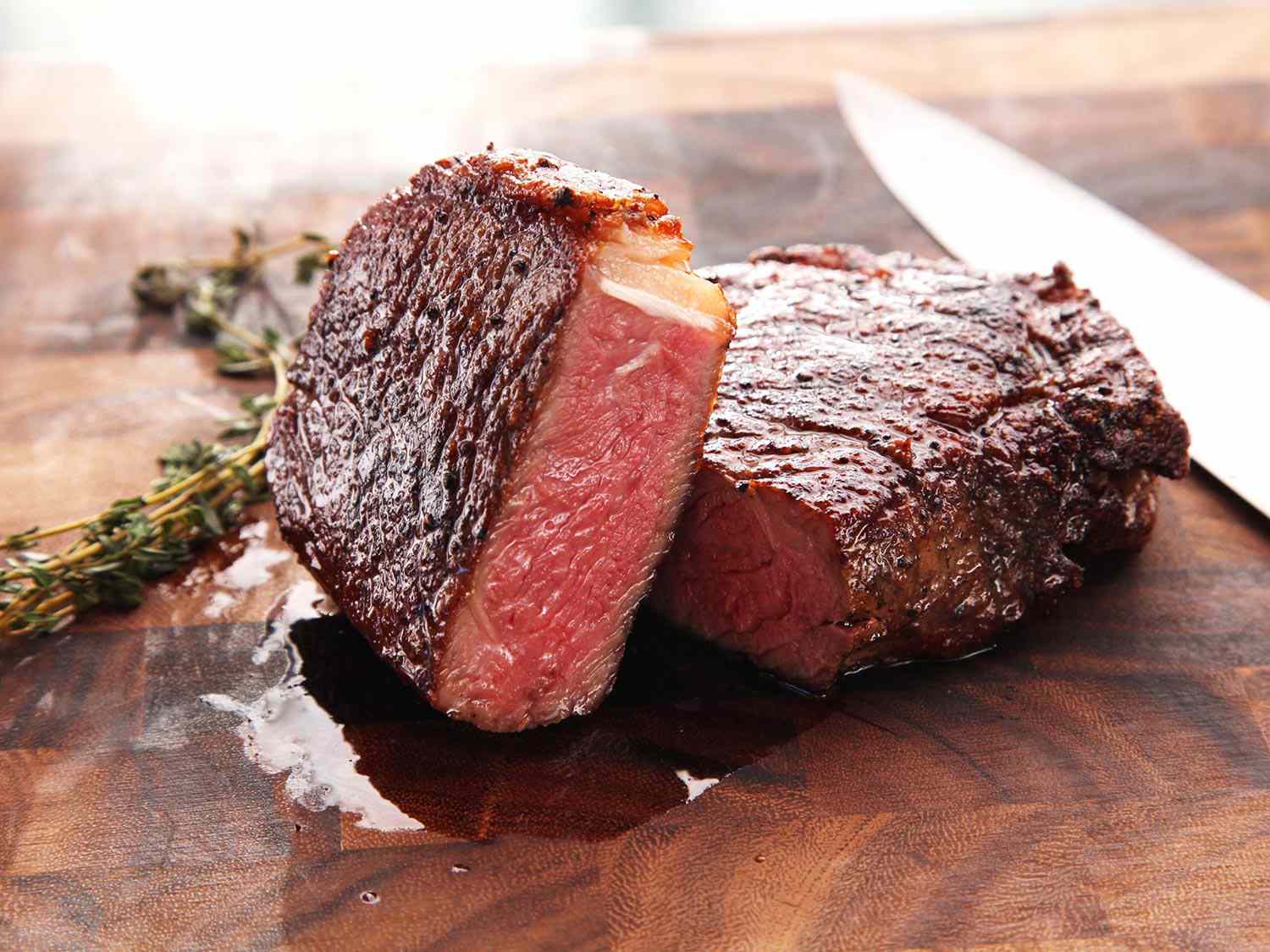Why YSK: When you cook meat, any water on the surface must first evaporate before much browning can occur. You want to get as much of a Maillard reaction as possible in the limited cooking time you have before the meat reaches the correct internal temperature. Removing the moisture first means that the heat of the cooking surface isn’t wasted on evaporation and can instead interact with the meat to form the complex sugars and proteins of the Maillard reaction.



I’m not sure if it is covered in the article but you can achieve extra maillard reaction with a more deeply seasoned, juicer, tender steak with a dry brine.
It’s super simple, it just takes time. Salt your steak all over and stick it in the fridge on a wire rack overnight.
If you check the steak within about 3 minutes you’ll see the salt drawing out moisture into little beads on the surface. This would be a bad time to cook, you’d lose that moisture and waste energy boiling the surface liquid off your meat, resulting in a grey bland steak. Over the next hour the juices dissolve the salt, making the brine. Leave it for several hours and the salt will diffuse into the meat and… Do science to the protein (read the dry brine article on serious eats, it explains all!). This will make the interior of the steak extra juicy and the exterior extra dry for a great crust. If you put the steak on the rack the circulating air also dries out the surface.
If you’re buying a decent steak it’s well worth the near zero effort that this takes.
For the ultra lazy, typically me but I do love cooking some good steaks so it’s worth the effort, I’m assuming this is it: https://www.seriouseats.com/how-to-dry-brine
That’s the one, thanks for linking. I typed that up on my phone and couldn’t be bothered finding it, but Lemmy deserves better!
It’s a good read, they have some great technique articles.
I buy lousy steaks, will this technique elevate a lousy steak to a mediocre steak?
My time is literally not worth as much as buying a better cut of meat.
It absolutely should, looking back at my post I’m not sure why I worded it like that, but it will improve cheaper cuts. Your mileage may vary and you still want to do a good job actually cooking the steak, but the salt will do exactly the same thing. As it travels through the interior of the steak it will season it deeply, meaning every bite it properly seasoned, not just the surface. Meat loses moisture during cooking as high heat tightens the muscle fibres, squeezing out liquid. The salt will loosen muscle fibers, which squeezes out less liquid. Apparently some of those proteins also break down into a gel like liquid which clings onto the meat better. All of this I would imagine is actually probably more beneficial to cheaper cuts.
If you know you’re eating steak tomorrow, prep it now! In fact, I have always left it for 12 - 24 hours, but depending on how thick the steak is, a couple of hours is probably fine and will be better than not doing it at all. Just be sure the steak has reabsorbed all of the liquid that the salt drew out in the first place.